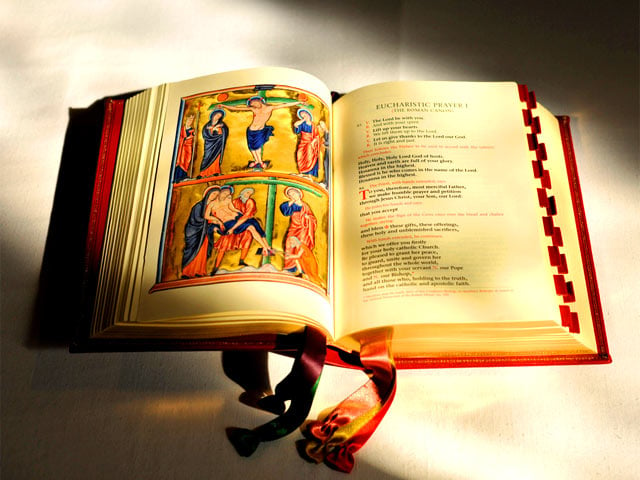- Accueil
- Notre communauté
- Notre foi
- Nos ministères
-
Vie paroissiale
- Calendrier des événements
- St. Aidan's Video Links
- Blog paroissial
- Archives des nouvelles
- Mass Etiquette and Information
- Ad Orientem News and Facts
- Catholic Links
- Prayers and Announcements
- Luis Dizon Reflections - Archive
- Bulletin
- Nous contacter
- Recherche

From Law to Grace (6th Sunday of Easter)
Click here for this Sunday’s Readings
Acts 15 recounts the first Church council to ever take place. The Jerusalem Council was convened in response to the rise of the Judaizer heresy, which taught that it was necessary for Gentile Christians to be circumcised and become Jews to be saved. Writing shortly before this, St. Paul recalled how Judaizers came to Antioch and were convincing even apostles such as St. Peter to separate from the Gentiles. The problem was serious enough that he declared that these Judaizers were preaching a different Gospel and under anathema (Gal. 1-2).
This Council came to the decision that Gentiles did not need to be circumcised or keep the ritual obligations of the Mosaic law to become Christians. However, this did not mean they were under no obligations whatsoever. In our reading from Acts, we see how Gentiles were given a few basic rules, which included avoiding sexual immorality, food sacrificed to idols, meat from strangled animals, and consuming blood. The purpose of these rules, as Paul explains elsewhere, is to avoid giving offense to anyone lest they stumble, as well as to avoid inadvertently taking part in the worship of demons (1 Cor. 8-10).
The last thing to note is that the Jerusalem Council appeals to the guidance of the Holy Spirit in their decision, stating “it seemed good to the Holy Spirit and to us” (v. 28). This serves as Biblical evidence for the Magisterium, as it shows how God leads the Church through collective decisions of her leaders to arrive at the truth.
From this passage, we see not only how God guides His Church, but also how this guidance allowed her to resolve one of the earliest doctrinal controversies. This in turn opened the door for all nations to be converted. Finally, it is an occasion for us to rejoice that we do not have to become Jews to enter into a saving relationship with God, because in the words of Paul, we are “not under law but under grace” (Rom. 6:14).
J. Luis Dizon
